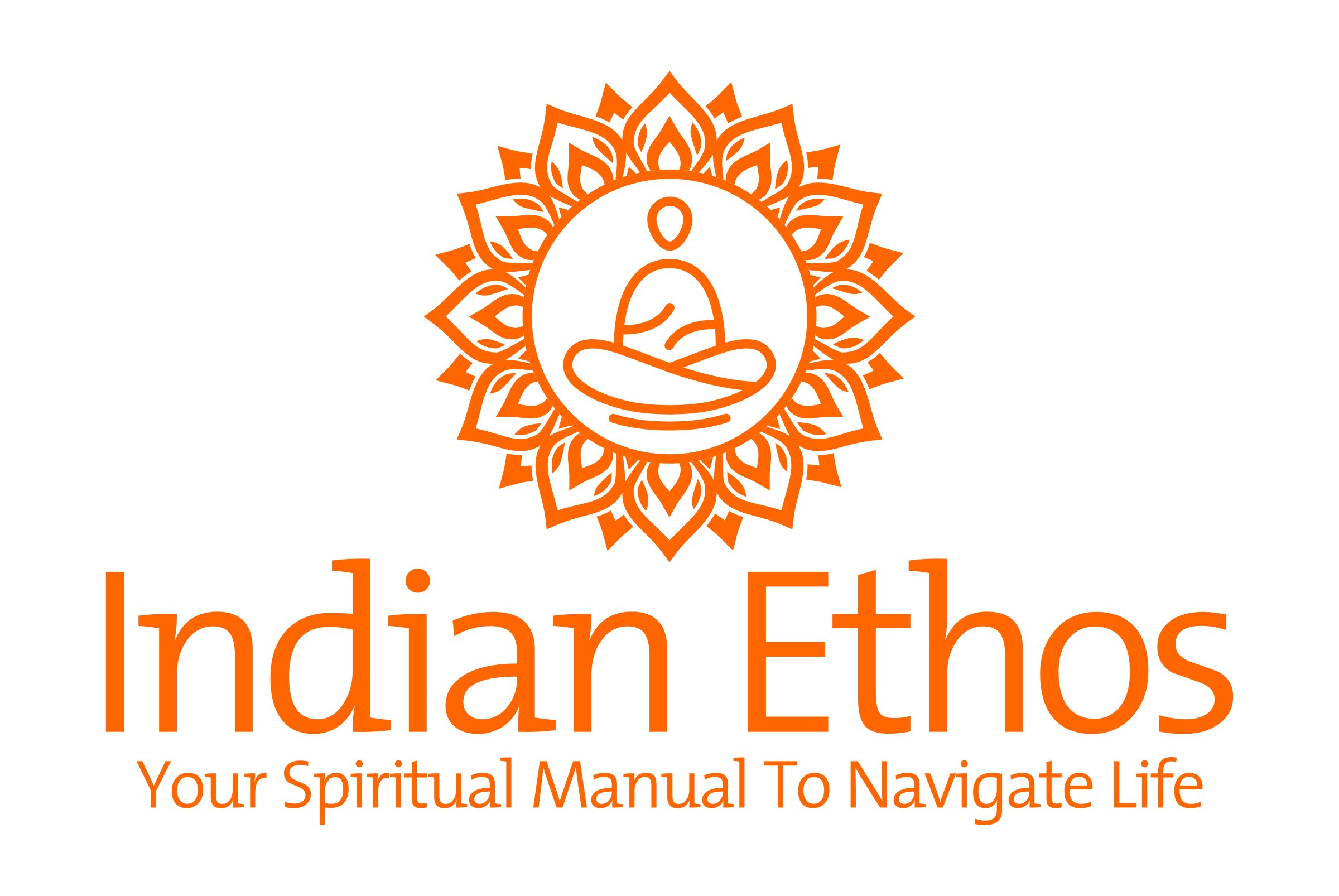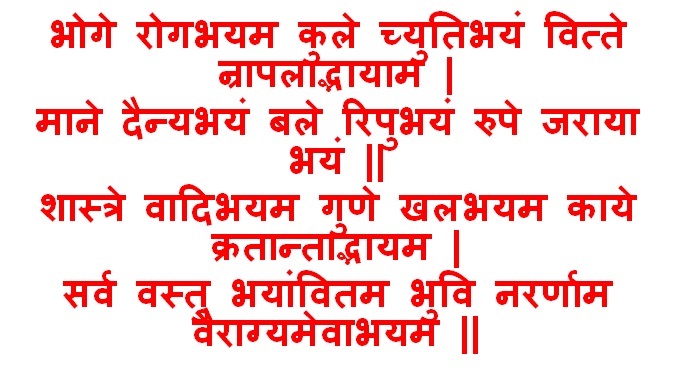Bhoge rogabhayam kule chyutibhayam vitte nrpaladbhayam,
Mane dainyabhayam bale ripubhayam rupe jaraya bhayam.
Shastre vadibhayam gune khalbhayam kay ekratantadbhayam,
Sarv vastu bhayanvitam bhuvi nranam vairagyamevabhayam.
Just like a lotus in spite of being in the middle of the pond does not allow the water droplets to stay on it, a perfect renunciation is getting unattached to all material things of the world even when we are in the middle of it, dealing with it on daily basis. One may encounter various stimuli from his surroundings every now and then through his five senses, but it is only up to his mind which decides whether to notice the same or not. Even if noticed, mind is to decide whether to deal with it or not, even if one may choose to deal with it, it is upto him and his control over his mind to decide whether or upto what extent to be affected from it. Our attachment to the various objects of the world decides our fate as it makes us afraid of losing those objects.
But you know what; fear to lose something is only till the time our mind decides to cling to it, and dwell on it, but the moment there is a sense of trusteeship evolved, all fears disappear. And there starts the Yoga of Renunciation.
Bhartihari truly said in the above mentioned shlokas (verses) from VairagyaShakatam:-
“In enjoyment, there is fear of disease; in social position, there is fear of falling off; in wealth, there is the fear of (hostile) kings; in honour, there is the fear of humiliation; in power, there is the fear of foes; in beauty, there is the fear of old age; in scriptural erudition, there is the fear of opponents; in virtue, there is the fear of traducers; in body, there is the fear of death; everything in this world pertaining to men is attended with fear; renunciation alone leads to fearlessness.”



